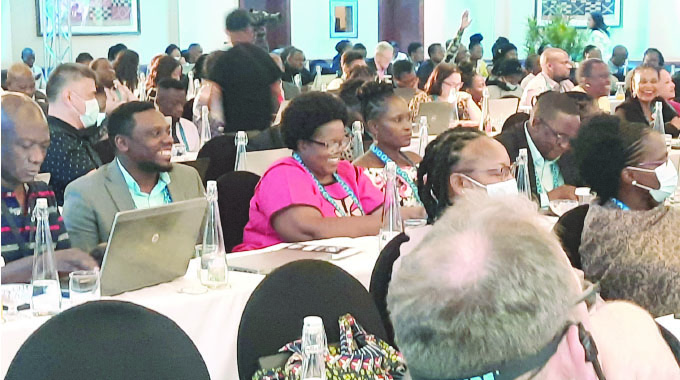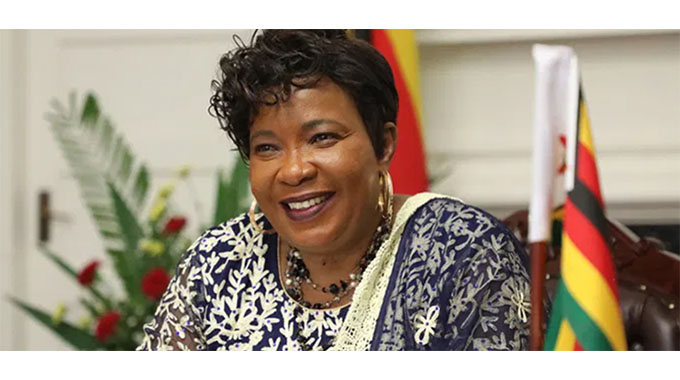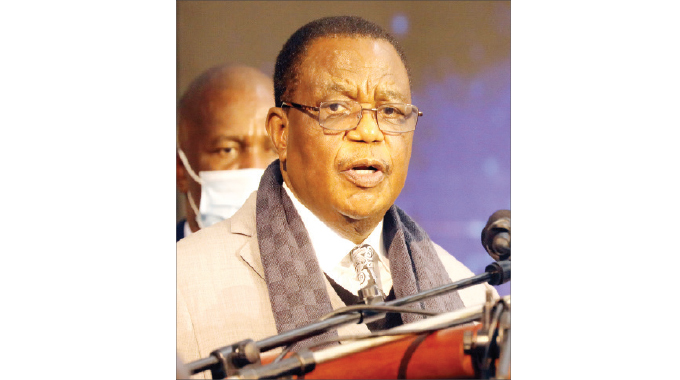Government worry over GBV prevalence

Leonard Ncube, Victoria Falls Reporter
GOVERNMENT is concerned about the high prevalence of gender-based violence including early child marriages and teenage pregnancies whose cases increased significantly during the Covid-19 period.
Speaking at the Regional Sexual and Reproductive Health and Rights Symposium in Victoria Falls, Ministry of Health and Child Care deputy director for monitoring and evaluation Mr Lloyd Machacha said Zimbabwe is still reeling from the effects of Covid-19 on general health service provision.
“On average our out-patients department attendance rates were hovering over 84 percent based on population that presented at health facilities but numbers started going down to as low as 41 percent during the peak of Covid-19 when people could not access facilities due to restrictions.
“We carried out an analysis and realised that during the Covid-19 period there was an increase of 13 percent in teenage pregnancies.
There was also the issue of gender based violence cases that were reported across the country and the analysis also showed that numbers had more than doubled from the period before Covid-19 era to around over 40 000 in 2020,” said Mr Machacha.
He said Covid-19 affected access to health services by restricting movement of citizens, disrupted protection services and network as well as health commodities supply chain while the aspect of fear of the unknown was also prevalent among citizens.
The symposium which started on Tuesday, is a platform that seeks to improve the sexual and reproductive health and rights of all people in East and Southern Africa, particularly adolescent girls, young people and key populations by promoting an integrated approach to the issue, HIV and gender-based violence.
More than 20 countries from the region are attending the event being convened by “2gether4SRHR” programme, a comprehensive regional initiative funded by the regional sexual reproductive health and rights team of Sweden.
It is being implemented jointly by UNAIDS, UNFPA, Unicef and the World Health Organisation in partnership with regional economic communities and civil society organisations among other partners.

Participants expressed concern about soaring numbers of girls and young women who are trapped in the vulnerable cycle of child marriage, teenage pregnancy and increased risk of HIV infection.
Mr Machacha said in the case of Zimbabwe, Government has tried to capacitate local production of medical supplies, improved financing for health services and implemented human resources capacitation programmes.
He also commended the First Lady Dr Auxilia Mnangagwa for her humanitarian work countrywide targeting vulnerable communities which he said helped reach out to marginalised populations and address early child marriages and teenage pregnancies.

Amai A Mnangagwa
“Engagements are underway to address the impact of Covid-19 on human resources and health in generalNumbers are now improving as we are seeing a downward trajectory on teenage pregnancies post Covid-19 lockdowns,” said Mr Machacha.
Media, church and family can help raise awareness and address GBV and other social ills.
Vice President and Minister of Health and Child Care Dr Constantino Chiwenga who was guest of honour on Tuesday, commended the support from partners to fund sexual reproductive health and rights in Zimbabwe and the region, saying integrated services will help address the social ills.

Vice-President Chiwenga
His speech was read by chief public health director Dr Munyaradzi Dobbie.
He said the event was an opportunity to take stock of the progress made, celebrate achievements, identify promising practices for replication in other countries and learn from experiences.
“It is also a time to rededicate ourselves towards the achievement of universal access to sexual and reproductive health and rights of women, men, boys, and girls in East and Southern Africa.
“Integration of SRHR, HIV and GBV services contributes to improved service access, reduce waiting times and results in greater patient satisfaction with services received as well as increased job satisfaction among health care providers,” said Dr Chiwenga.
He thanked development partners for investing more than US$10 million from 2018 to date into the programme.
Dr Chiwenga said Government is a strong proponent of regional integration and is committed to addressing social challenges facing the population.
He said the country had established Standard Operating Procedures and a national vision for integrated patient-centred care. — @ncubeleon












Comments